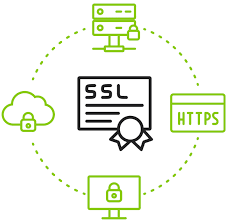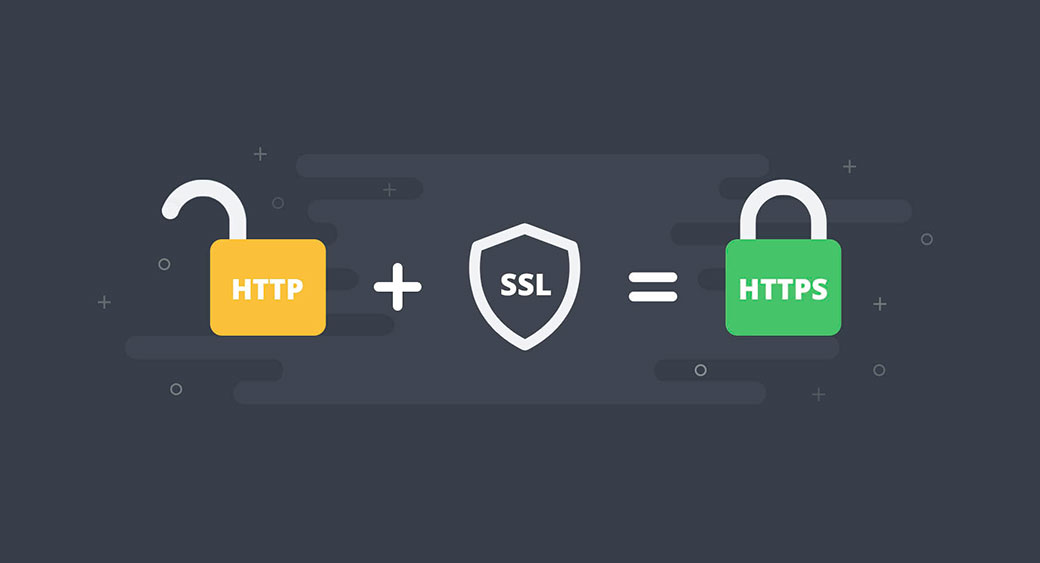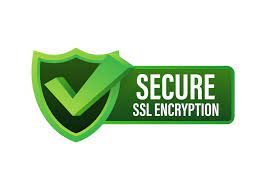SSL, which stands for Secure Sockets Layer, SSL utilizes a combination of protective measures to securely encrypt transferred information. It uses public-key and symmetric-key encryption to secure a connection between the two machines that are interacting over the Internet. This protocol ensures that the data transmitted between the user and the website remains private and secure, protecting it from potential eavesdropping or tampering by malicious entities. In the context of hosting, SSL plays a pivotal role in safeguarding sensitive information, building trust, and improving website performance.

Why is SSL important?
Without this layer of protection, websites don’t have extra security when it comes to accessing and storing sensitive information. With SSL security protocol, hackers have difficulty obtaining and reusing information illegally. Information transferred between a server and a browser without SSL protection is not encrypted, meaning it is visible in plain sight or not coded.
SSL became a key part of internet security because of problems with Hypertext Transfer Protocol (HTTP), the framework used to connect web clients to web servers. HTTP uses public networks and lacks encryption, making it vulnerable. Malicious actors can easily read or extract names, addresses, credit card numbers and other personally identifiable information sent to a website. This is why HTTP over SSL (HTTPS), also known as HTTP Secure, has emerged as HTTP’s more secure successor.
Most websites today display the prefix HTTPS at the beginning of their web address. The “s” indicates to the visitor that the site uses SSL or TLS to secure its user activity.

How SSL Works:
- Handshake:
- When a user visits a website, their browser initiates an handshake with the web server. During this process, the server provides the browser with its SSL certificate.
- Authentication:
- The certificate serves as a digital passport, verifying the legitimacy of the website. It contains information about the website owner, the certificate’s expiration date, and the digital signature of the issuing certificate authority (CA). This verification helps users trust that they are connecting to the intended, legitimate website.
- Key Exchange:
- Once authenticated, the server and the browser exchange cryptographic keys. These keys are used to encrypt and decrypt the data exchanged during the user’s session on the website.
- Secure Connection:
- With the encryption keys in place, a secure connection is established. This means that any data transmitted between the user and the server, such as login credentials, personal information, or financial details, is encrypted and secure from interception.

Benefits of SSL in Hosting:
- Data Encryption:
- SSL encrypts the data transmitted between the user’s device and the server, making it virtually impossible for unauthorized entities to decipher or manipulate the information. This is especially crucial for sensitive data like login credentials and financial transactions.
- Trust and Credibility:
- Websites with SSL certificates display a padlock icon in the browser’s address bar, signaling to users that the connection is secure. Additionally, sites with SSL often have URLs starting with “https://” instead of “http://,” indicating a secure connection. These visual cues build trust and credibility among visitors.
- SEO Benefits:
- Search engines, such as Google, consider SSL as a ranking factor. Websites with certificates are more likely to rank higher in search results. This emphasizes the importance of SSL not only for security but also for improving a website’s visibility online.
- Protecting User Privacy:
- It protects user privacy by ensuring that sensitive information remains confidential during transmission. This is especially important for e-commerce websites and any site that collects personal information from visitors.
- Regulatory Compliance:
- Many regulations and industry standards, such as the Payment Card Industry Data Security Standard (PCI DSS), mandate the used to protect sensitive information. Adhering to these standards is crucial for businesses that handle financial transactions or personal data.
- Preventing Man-in-the-Middle Attacks:
- It helps prevent man-in-the-middle attacks where an unauthorized party intercepts and possibly alters the communication between the user and the server. The encryption provided by makes it extremely challenging for attackers to tamper with the data.

Obtaining and Installing an SSL Certificate:
- Purchase or Acquire:
- SSL certificates are typically obtained from certificate authorities (CAs). Some hosting providers offer free certificates, while others may provide options for purchasing more advanced certificates with additional features.
- Installation:
- Once obtained, the certificate needs to be installed on the web server. This process involves configuring the server to use the certificate for encrypted connections. Many hosting providers offer streamlined processes or tools to facilitate the installation of SSL certificates.
- Renewal:
- SSL certificates have expiration dates, and it’s essential to renew them before they expire to maintain a secure connection. Many certificate authorities provide reminders for renewal, and some hosting providers may offer automatic renewal options.


